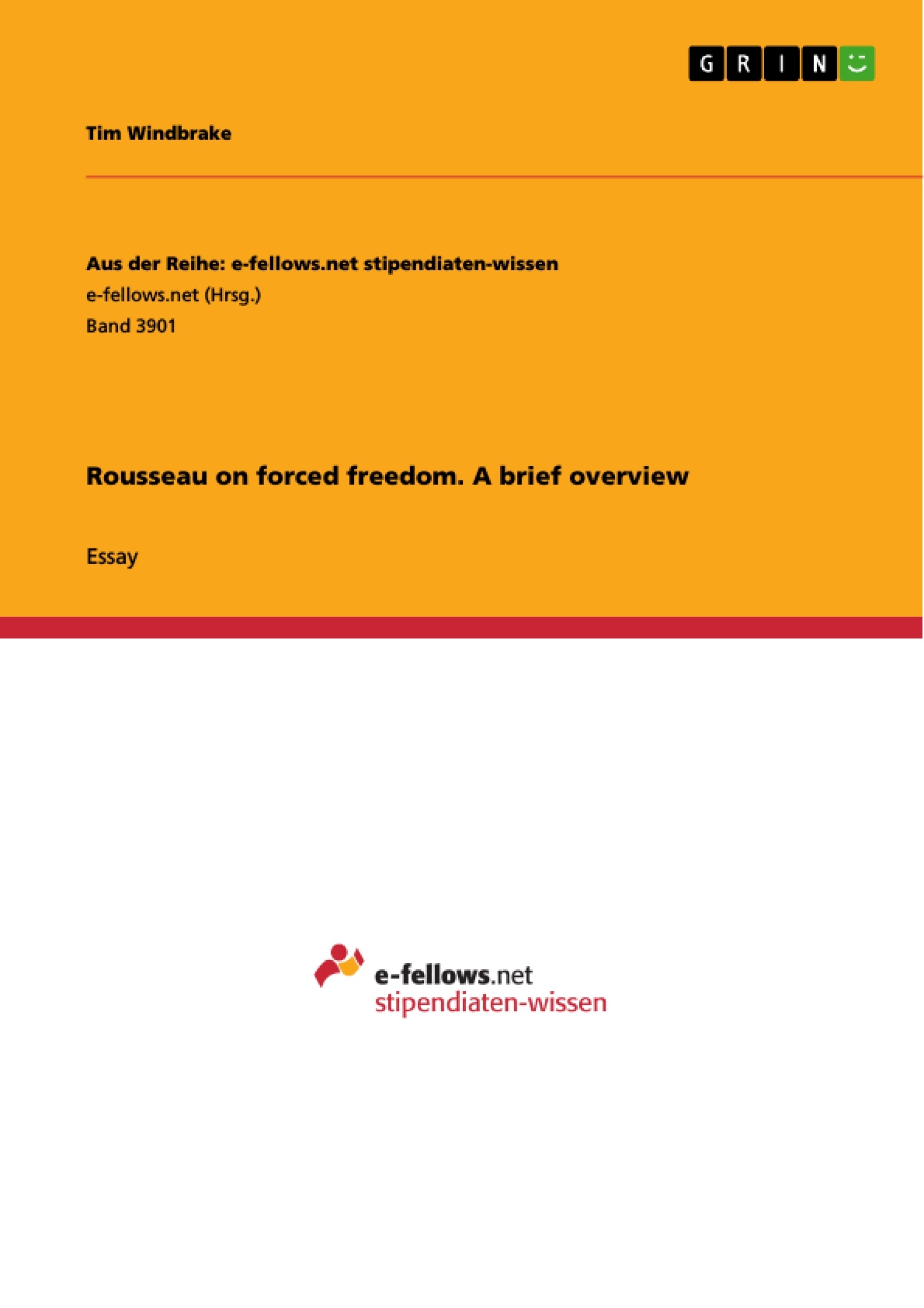This essay argues that Rousseau fails to fully justify his claim that one can be forced to be free. Rousseau tries to argue that the general will can force citizens to be free, and while the positive notion of freedom manages to reasonably combine force and freedom on an individual level, it does not apply to society as a whole. This is because Rousseau fails to justify that restrictions imposed by the general will are ultimately self-imposed by all citizens.
Inhaltsverzeichnis (Table of Contents)
- The positive notion of freedom
- The general will
- The democratic reading
- The transcendent reading
Zielsetzung und Themenschwerpunkte (Objectives and Key Themes)
This essay examines Rousseau's claim that one can be forced to be free. It critically assesses the validity of this assertion, exploring the potential for reconciling force with freedom on an individual and societal level.
- The positive notion of freedom as a key concept in understanding Rousseau's argument
- The role of the general will in shaping restrictions and ensuring freedom within a civil state
- The democratic and transcendent readings of the general will and their implications for individual freedom
- The challenges of reconciling force and freedom in the context of societal inequalities and legislative processes
- The limitations of Rousseau's arguments in fully justifying the claim that one can be forced to be free
Zusammenfassung der Kapitel (Chapter Summaries)
The essay begins by introducing the positive notion of freedom, which focuses on individual autonomy and self-governance. It argues that under this notion, self-imposed restrictions can be reconciled with freedom. Rousseau's concept of the general will is then explored, outlining its role in determining societal restrictions and its connection to individual freedom.
Two contrasting interpretations of the general will, the democratic and transcendent readings, are presented. The democratic reading highlights the importance of proper legislation and voting based on the public good. It acknowledges the challenges posed by social inequalities and the potential for a split outcome in legislative processes. The transcendent reading, on the other hand, argues that the general will always exists and is always beneficial, potentially presenting conceptual and epistemic problems.
The essay concludes by examining the limitations of both interpretations in fully justifying Rousseau's claim that one can be forced to be free. It argues that neither interpretation adequately addresses the issue of external imposition of restrictions, potentially violating the positive notion of freedom.
Schlüsselwörter (Keywords)
This essay focuses on key concepts and themes within Rousseau's philosophy, including the positive notion of freedom, civil liberty, the general will, individual autonomy, societal restrictions, democratic processes, and the legitimacy of force in achieving freedom. It examines the interplay of these elements in the context of Rousseau's claim that one can be forced to be free.
- Quote paper
- Tim Windbrake (Author), 2020, Rousseau on forced freedom. A brief overview, Munich, GRIN Verlag, https://www.grin.com/document/1128122



